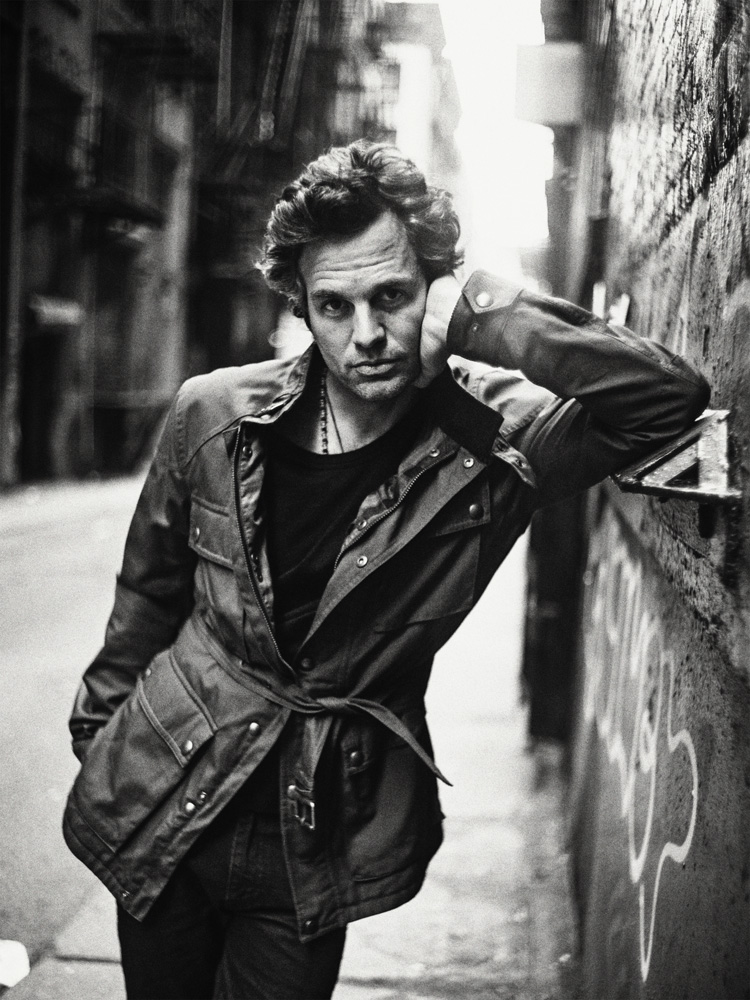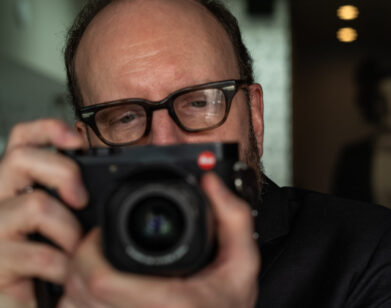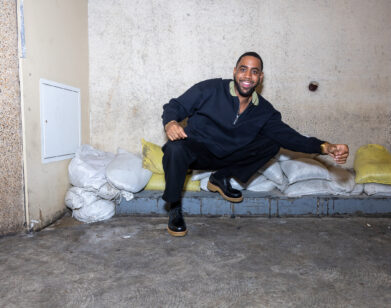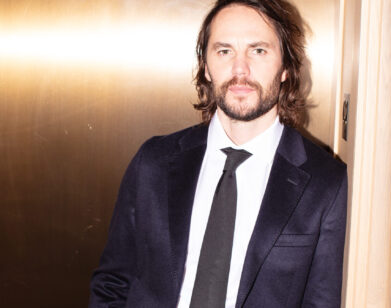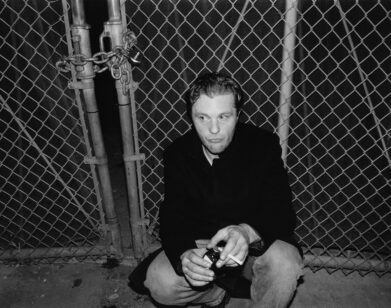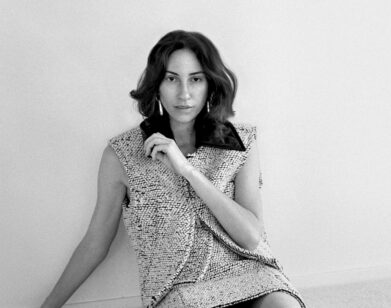Mark Ruffalo
My thinking was, ‘Aren’t we at the place in our culture where a gay man should be playing this part?’ And Ryan [Murphy] said, ‘That’s the antithesis of what this movie is about. It doesn’t matter what your sexual preference is. It matters what actor I think should play this part.’â?? Mark Ruffalo
In 2000, playwright-cum filmmaker-Kenneth Lonergan’s quirky little sibling drama You Can Count on Me broke out of the festival circuit and went on to be nominated for two Academy Awards (for screenplay and for actress Laura Linney’s star turn). Its success was powered, in part, by the electric performance of a virtually unknown 32-year-old leading man. By the time he booked the part, Mark Ruffalo had already given up on acting at least once, in the mid-’90s, heading home to Kenosha, Wisconsin, to work for his commercial-painter father. But he came back, again and again—auditioning, he once said, 800 times without booking a single role. After moving to Los Angeles in the early ’90s, Ruffalo studied at the Stella Adler Institute with classmates Benicio Del Toro and Salma Hayek, and did years of no-budget theater to not much fanfare. For a while he lived with his brother in the then-sketchy environs near MacArthur Park and tended bar at, among other places, the Chateau Marmont, often serving drinks to his enviably successful near-contemporaries Johnny Depp and Nicholas Cage.
Along came Lonergan, Linney, and a perfect part. Ruffalo’s nervy nakedness as the lost and fragile slacker Terry in You Can Count on Me was immediately mesmerizing. Like sighting a wild bear lumbering down a city street, it felt charmingly odd and feral and dangerous. It also set a precedent for his work to come. Playing a series of tousled scoundrels and haunted lost boys in a series of Hollywood hits, from David Fincher’s Zodiac (2007) to Martin Scorsese’s Shutter Island (2010), Ruffalo became the wounded hipster neurotic of modern cinema—a niche that reached apotheosis in his role as the conscientious restaurateur but feckless sperm donor in The Kids Are All Right (2010). Ruffalo has said that the shimmering charm of his performance, for which he received an Oscar nomination, was inspired by and in homage to his larger-than-life brother Scott, who was murdered in 2008.
Years earlier Ruffalo underwent surgery to remove what was revealed to be a benign brain tumor. From the operation, Ruffalo made a full recovery, but for each of his characters, the scars of their lives show through. Whether playing a cop or a drifter, a do-gooder or a creep (or even all at once), Ruffalo’s performances have the candid verve of a naked man trying but failing to cover himself and his wounds. His characters are ever trying to protect others from what they fear most in themselves. Which made him the obvious and perfect choice, in 2012, to play Bruce Banner/the Hulk in the megaton comic-book franchise The Avengers. As the brilliant scientist desperately trying not to hulk out, Ruffalo is a scruffy Dr. Jekyll patently clenching his entire being to hold back his muscly green Hyde.
Typical of the breadth of his choices and the range of his ability, the two movies he stars in this summer could hardly be more different. In John Carney’s Begin Again, Ruffalo plays a physically and psychologically rumpled record executive whose life is falling apart at the shaggy seams. And in Larry Kramer’s adaptation of his Tony Award-winning play The Normal Heart, directed by Ryan Murphy and premiering on HBO May 25, Ruffalo plays an impassioned activist at the epicenter of the AIDS holocaust in 1980s New York.
Passion and activism are nothing new for Ruffalo, who has, since the late 1990s, lived at least part time in Callicoon, New York, and subsequently become the leading celebrity spokesperson in the anti-fracking movement. Back in New York City, and taking a break from filming Avengers: Age of Ultron in London to celebrate his daughter’s birthday, Ruffalo arranged to speak with his Normal Heart co-star Julia Roberts, who was at home in Los Angeles—he had to postpone, then called her the next day.
MARK RUFFALO: Hello! I’m so sorry about yesterday.
JULIA ROBERTS: Oh, it’s so fine. You know what? I actually had five-dozen cookies to make yesterday, so I got it all done in the morning. It was perfect. What were you doing?
RUFFALO: I was in London shooting Avengers.
ROBERTS: Oh, right. You are the Hulk. So I have some questions for you here …
RUFFALO: Things are going to get crazy. [laughs]
ROBERTS: Let’s start at the beginning, your growing up in Wisconsin …
RUFFALO: Oh boy.
ROBERTS: This is for real, man. Little Mark Ruffalo and the kind of boy that you were—did you have acting influence around you? Did you go to movies?
RUFFALO: Ruffalo, this is your life. I did grow up in Kenosha, Wisconsin, around a lot of my mom’s family. I had a lot of cousins and aunts and uncles around me, and my sisters and my brother. Probably the most formative part of it was that we grew up on the edge of a forest. It wasn’t a big forest, but it was enough. When you’re a kid, it feels gigantic. I spent a lot of my time in the forest, playing. You know, back then a kid could leave the house in the morning and not come back until three or four in the afternoon and nobody batted an eye. We’d get on our bikes and ride around. It was a pretty free childhood. I really had an affinity for nature, and that relationship felt very comfortable. I was an introverted kid; I liked my time alone. And the rest of my family is pretty extroverted, so I felt like a bit of an oddball. They’re very gregarious and charming and charismatic people. I always felt like I was struggling as a young person. I think everyone was very surprised to hear that I wanted to be an actor.
ROBERTS: It seems like a perfect idea for somebody with a great imagination and an appreciation for the beauty of the world—and if you felt you weren’t as open and expressive and charismatic as your family, you would decide to be an actor so that you could express all the things that you know you can do.
RUFFALO: I never really thought of it that way. Actually, you reminded me of a quote that my acting teacher Stella Adler wrote in her book [The Art of Acting], which I asked her to sign: “The young actor feels some greatness inside themselves that they want to give back to the world.” That resonated with me, but I didn’t really understand what she was talking about until much later, in the way you surmised that my struggle to become an actor was from being this kind of introverted young boy.
ROBERTS: I like picturing you in the forest in Wisconsin, a little dirty boy playing in the leaves and riding your Huffy bicycle around town.
RUFFALO: [laughs] Yes, and just covered in skinned knees and scabs and dirt.
ROBERTS: But there you are in New York City. Do you ever want to pack up the family and go to Small Town USA and tell the kids that they can just get on their bikes and go?
RUFFALO: Actually, we did our version of that. We were living in Los Angeles and we had this summer place in upstate New York that was kind of our base. We all considered it our home. Even when we were living in Los Angeles, it was more like we were at boarding school, waiting to go home for the holidays or for summer. [laughs] There came a point, after the economic crash a few years ago, in 2009—plus some dramatic things that were happening with me at the time—when we were just like, “What are our priorities and why? I’m going from movie to movie, and I’m not spending enough time with my kids.” We were rushing around trying to keep up with the Joneses and finally, like five years ago, my wife and I looked at each other at the end of the summer and said, “Why are we going back?” There’s a great school here, the kids can get up in the morning and walk outside with barely any clothes on, and they’re out there in the creek, in the pond, in the woods with the animals, catching salamanders or tree frogs or snakes or chasing the chickens around. So we decided to just sell everything in L.A. I basically took two years off and we just went to this small, very working-class farm town. We spent about four years there. That was really a wonderful thing for all of us, to have the family and so much less noise. There’s nothing to do but be with each other. It was a really special time. Now we’re back in the city, of course. We still go up there whenever we can, but it’s very different. Long gone are the days when the kids get up in the morning and make themselves a bowl of cereal and just blast out the screen door into the wilderness. It has taken an adjustment for all of us. I miss it, definitely.
When you’re a young actor and you’re really fighting to have your place in the world—for me anyway—it took a mental focus and energy and striving. It took a long time. And it was my whole life. Mark Ruffalo
ROBERTS: You know how hard your wife works to keep it all in place and imbued with love and spirit while you’re gone. That’s a big job. I mean, you are a big-time actor, working all the time. I can’t believe when you said you took two years off. Like, really? How did you slip that in? Now, how did you meet our beloved Ryan Murphy and get involved in The Normal Heart?
RUFFALO: During this two-year break I didn’t know what I was going to do. I was kind of thinking that I was going to move into directing at that point. I did direct one little movie [Sympathy for Delicious, 2010]. It got pretty widely panned by the critics, but I really like it. [laughs] It didn’t deter me at all. It actually was kind of a great relief. I got that out of the way! I was actually out gardening and I got a call from Kevin [Huvane, super-agent and executive at CAA]. He said, “Hey, we’re making The Normal Heart.” I said, “Yeah, I know.” I met with Barbra Streisand when she was doing it. And I wasn’t sure that I was ready for that part. Kevin said, “Well, it’s Ryan Murphy doing it.” And, you know, it’s a great part. It’s such a great play and it’s so important. And the idea of Ryan doing it is also another exciting turn of events.
ROBERTS: Ryan was not taking no for an answer.
RUFFALO: Yes. I’d heard about him and I was a little nervous about saying no without at least speaking to him, giving him the respect that he deserves. We met, and my thinking at the time was, “Aren’t we at the place in our culture, in our development, where a gay man should be playing this part?” That was kind of a concern for me. Politically speaking, it felt like that was the right thing for this play and for this movie at this time. And Ryan said, very clearly, “That’s the antithesis of what this movie is about. It doesn’t matter what your sexual preference is. It matters what actor I think should play this part.”
ROBERTS: Isn’t that one of those great things about Ryan, that his scope for understanding people is so wide open? That is what everybody has been fighting for. So that everybody can be the same.
RUFFALO: He was kind of ahead of me in his development. Here’s this gay man in Hollywood, who could easily have had a political agenda, basically saying no. It also signaled what this movie was going to be. When it lived as a play, it was very political. It was a polemic. It was designed to agitate and to be very confrontational. But where Ryan was taking it, beyond the politics, really ignited me. I said yes!
ROBERTS: So then you met Larry.
RUFFALO: You know, I think people wrongly perceive him as this harsh, angry activist who’s going to challenge their beliefs and their commitment to humanity. I was nervous about that. I don’t know that I have that kind of inner strength. I don’t know how Larry is going to feel. But Ryan was like, “Larry signed off.” And I was like, “Okay, that’s good. Now let’s meet him.” It was kind of the perfect meeting. It was at one of those cocktail party dinners during Oscar season—for The Kids Are All Right [2010]—one of those cocktail things where you don’t know what to say. You don’t really know what you’re doing. Like, am I campaigning? It’s like a dog-and-pony show, but Larry Kramer was there! He was there because he loved that movie. And [Ruffalo’s wife] Sunrise and I literally ran over to say hello to him. It was a very easy, gentle meeting. Sunrise, Larry, and I were off in a corner and I don’t think I schmoozed at all.
ROBERTS: Mark, you’re not a schmoozer.
RUFFALO: I’m not. [laughs] And so we got in this really great conversation. And what I saw in him, first of all, was someone who loved movies, loved the culture of movies. You forget that Larry was an Academy Award-nominated screenplay writer who worked for the studios as an assistant and as a development person for years before he became the Larry Kramer of The Normal Heart. He was a man who enjoyed an enormous amount of success, who commanded a great amount of respect in the industry as a writer of films. So he was just very enthusiastic and not at all what I expected—loving and kind, enthusiastic and supportive and charming. I said, “That’s it! We’re off. We’re on our way. This is going to be a great experience with him.”
ROBERTS: Hold on. [to her husband] Danny, I’m talking with Mark Ruffalo.
RUFFALO: Tell him, “Hello.”
ROBERTS: Mark says, “Hi.” [to Ruffalo] He’s so proud of us, he says. We’re leading the charge. [laughs] It was so cinematic what he just did. He just opened the front door and it’s so foggy outside. It was like a scene from Gone With the Wind, watching him go out into the fog.
RUFFALO: Wuthering Heights! That’s what it’s all about, right there.
ROBERTS: It really is. So let’s go into family and balance, because I feel like it’s so incredibly sexist that I always get asked, “How do you balance work and kids and all that kind of stuff?” while I sit next to my male counterpart who also has children and family. Nobody asks him that question. You and Sunrise have that same dancing, balancing spirit that Danny and I do, trying to raise big-hearted humans of the world.
RUFFALO: It’s challenging. It’s an evolving thing, and at times it’s really heartbreaking. You know, it’s interesting being a modern parent because in some ways there’s so much more available to us than there was to my parents. You really can have your dreams and at the same time have a family. But it has to be a really deliberate practice. Sometimes it is better than others. When you’re a young actor and you’re really fighting to have your place in the world—for me anyway—it took a mental focus and energy and striving. It took a long time. And it was my whole life. Sunny came along and we were doing that together. Then our kids come along, and what used to be the most important thing in my life suddenly wasn’t. So it’s been this growing phenomenon that we’ve been through for all of us to feel like we have it all. I want my kids to know that dad loves what he does and it makes him happy, that work can be a place where we express our greatest self. That they can do that, and mom and dad can do that, and they can still have this loving relationship together and see each other and hear each other and be there for each other. But at the same time, you don’t want your kids to feel like that’s more important than them. How do you find balance? We’ll always be evolving. The kids’ needs are always changing. Sunny and my friendship-slash-marriage-slash-love affair is also changing and growing along the way. Honestly, it hasn’t been without its difficulties, its shortcomings; it hasn’t been without joy or learning or developing. I know you know this.
ROBERTS: It’s an ever-moving target of harmony. But you guys have the right spirit, the right idea. Danny texted me this quote he heard Arianna Huffington say, because he knows I’m quite besotted with her, and it made a huge impact on me: “A good day begins the night before.” And I’m telling you, for the last four days, since I heard this, I’ve felt even more cheerful than normal. I think this is what we as families, your family and my family—we struggle to function on such a high level that the function no longer matters. It just becomes the joyful action.
RUFFALO: Hey, that’s pretty beautiful.
ROBERTS: But part of the functioning is that I have to start making breakfast. [laughs] But, hold on. I know that you are the Hulk. Is there an action figure of you?
RUFFALO: Yeah. [laughs]
ROBERTS: Can I have one as my payment for doing the interview?
RUFFALO: Absolutely.
ROBERTS: Because what I’m looking for—and you can tell your friends—I want to be in a movie where they make a Lego of me. My house is full of Legos.
RUFFALO: I’m looking at a table full of Legos right now. They’re awesome things. How cool would it be to have a Lego of yourself? Did you see The Lego Movie by any chance?
ROBERTS: I saw The Lego Movie. It was genius.
RUFFALO: It was so good. It was more for Sunny and me than it was for the kids.
ROBERTS: I hope that I asked you enough questions.
RUFFALO: It was like you and I were just hanging out on set talking.
ROBERTS: Except you didn’t tease me quite as mercilessly in this particular conversation, which I appreciate. I still remember in the hallway of the hospital I said something and you go, “No, that’s a really good story. That was … that’s funny.” [Ruffalo laughs] Do you remember that? You don’t remember that because it didn’t scar you like it scarred me.
RUFFALO: What about when you had to touch my feet and you were like, “Ruffalo, are you kidding me?”
ROBERTS: Get a pedicure! [turning to her son] Hi, honey. Henry Moder just woke up. Okay, well it’s officially time to make breakfast.
RUFFALO: Go.
ROBERTS: So it’s your daughter’s birthday tomorrow? How old is she going to be?
RUFFALO: She’s going to be nine.
ROBERTS: Aw, nine is so beautiful. Tell her happy birthday from the Moders.
JULIA ROBERTS IS AN ACADEMY AWARD-WINNING ACTOR. SHE STARS IN THE NORMAL HEART, WHICH PREMIERES THIS WEEK ON HBO.

